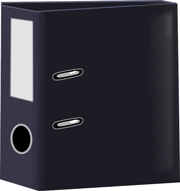The law requires every business to keep proper accounts and records. You will need them to substantiate your business transactions & claims to IRAS for income tax purposes. When you don’t keep proper records, you risk having your claims disallowed and getting into trouble with the authorities.
But once you start keeping proper records, there’re perks as well. You get an accurate picture of your cash flow position and how business is doing at any point in time. This can help you plan the next steps for your business more accurately and confidently.
To help businesses manage their record keeping, the IRAS issues guidelines on record keeping requirements for businesses. Generally small businesses that are non-GST registered have simpler record keeping requirements as compared to GST registered businesses.
If you’re a small business that is not GST registered, here are 5 basic things that you should know about record keeping for your business.
1. What types of records to keep
You need to keep record of source documents relating to your business transactions. Some examples of source documents would be invoices, receipts, bank statements, contracts and any documents related to your business including those issued by your customers, suppliers, the Government.
Another type of record to keep is accounting records and ledgers relating to your income, expenses, assets and liabilities.
2. How long to keep business records
Beginning from Year of Assessment 2008, you need to keep business records for a period of five years from the relevant Year of Assessment. For example, your business records for Year of Assessment 2013 need to be kept until 31 Dec 2017 (this is often referred to as the record retention period).
3. How to keep records
Records can be kept in manual form by maintaining a ledger book and keeping the physical invoices and receipts. You can also keep records in electronic form using a computer and accounting software.
4. Manual or electronic?
If you’ve had the experience of spending a lot of time to find the receipt for an expense, you’ll appreciate the advantages of keeping record of source documents in electronic form.
When you scan and upload the documents to your cloud software while on the go, you archive them instantly and this makes retrieving them later much easier as you can do a search based on the date or description. Ctrl+F is something you can’t do with paper.
Keeping accounting ledgers electronically is also advantageous as they don’t fade over time unlike paper records. If you’re not using a cloud software that automatically takes care of this, be sure to keep them secure and backed up.
5. What about my physical source documents if I keep electronic records?
Source documents in electronic form can be used to substantiate business transactions. However original physical source documents should still be kept. Certain official documents should also be retained in hard copy.
Getting a good system set up will ensure that things are organised when you need to do up your accounts and taxes. Talk to us and be efficient in keeping records for your business.
---
Credits:
www.iras.gov.sg



